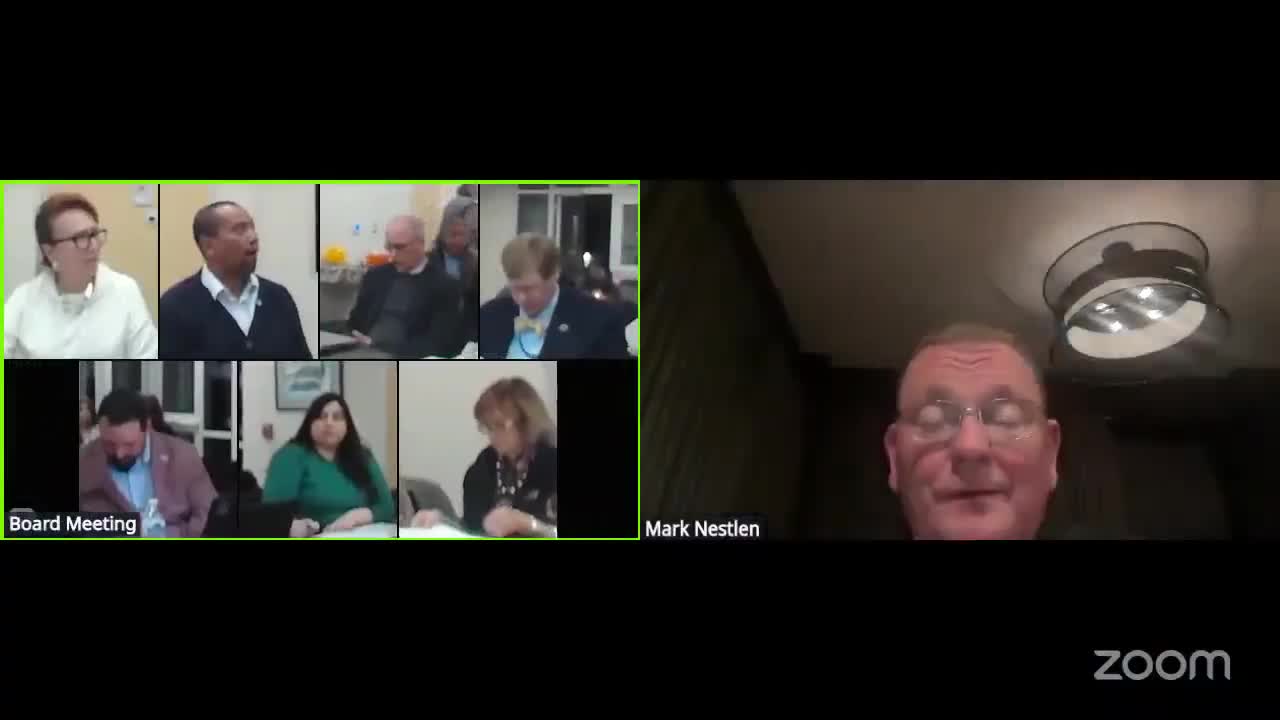State EV school-bus pilot to bring a 16‑passenger electric bus to Taos district for six‑week trial
Get AI-powered insights, summaries, and transcripts
Subscribe
Summary
Mark Nestland, project manager for Green Power Motor Company, told the Taos Municipal Schools Board on Nov. 5 that the state's two‑year electric school‑bus pilot will place a 16‑passenger Type A electric school bus in the district for a multi‑week demonstration starting the week of Nov. 17.
Mark Nestland, project manager for Green Power Motor Company, told the Taos Municipal Schools Board on Nov. 5 that the state's two‑year pilot will place a 16‑passenger Type A electric school bus in the district for a multi‑week demonstration starting the week of Nov. 17.
Nestland said the pilot is funded by the New Mexico legislature and intended to produce operational data on electric buses in northern, cold‑weather conditions. The bus will be delivered with charging infrastructure and state‑paid insurance and maintenance support for the demonstration; the state will also install chargers and provide training for drivers, mechanics and local first responders. Nestland said the state will cover those costs and there will be no direct cost to the district for the pilot period.
The demonstration vehicle will stay through the Christmas period and return after New Year's; Nestland said training for district staff and first responders is scheduled the afternoon of Nov. 19. Green Power describes the Type A vehicle as a small activity or special‑needs bus that in many configurations does not require a commercial driver's license.
Nestland reviewed options should the district choose to pursue electric buses after the pilot. He said federal funding under the Clean School Bus program (EPA) remains available for some applicants; the state also included funds in its pilot agreement that could be used to buy buses after the two‑year demonstration, and the legislature has appropriated additional bus and charger funding that has not yet been released. Manufacturers and third‑party fleet partners also offer alternative acquisition models, including long‑term contracts that bundle chargers, maintenance and vehicle service.
Board members asked about safety and winter performance. Nestland said the buses are purpose‑built EV designs with battery weight distributed for stability; he cited reliability data from other northern jurisdictions showing comparable winter uptimes to diesel buses and cautioned that range can decline up to about 30% in cold weather because heating uses energy. He said those factors would be part of route planning and charging strategies.
Nestland said maintenance costs for EV buses are typically lower and that battery packs use lithium‑iron‑phosphate chemistry; warranty periods commonly run eight years and manufacturers are tracking longer real‑world battery life. He said the pilot bus for Taos is a 16‑passenger Type A vehicle and suggested creative uses during the pilot such as activity runs, recruitment trips and limited route trials.
The presentation included a schedule for charger installation and staff training and a request that board members visit the bus and the Nov. 19 training when the vehicle arrives.
Why it matters: The pilot lets Taos Municipal Schools test an electric school bus without upfront capital expense, gather local data about cold‑weather range and operations, and position the district to apply for federal or state funding if it wants to buy vehicles in the future.
